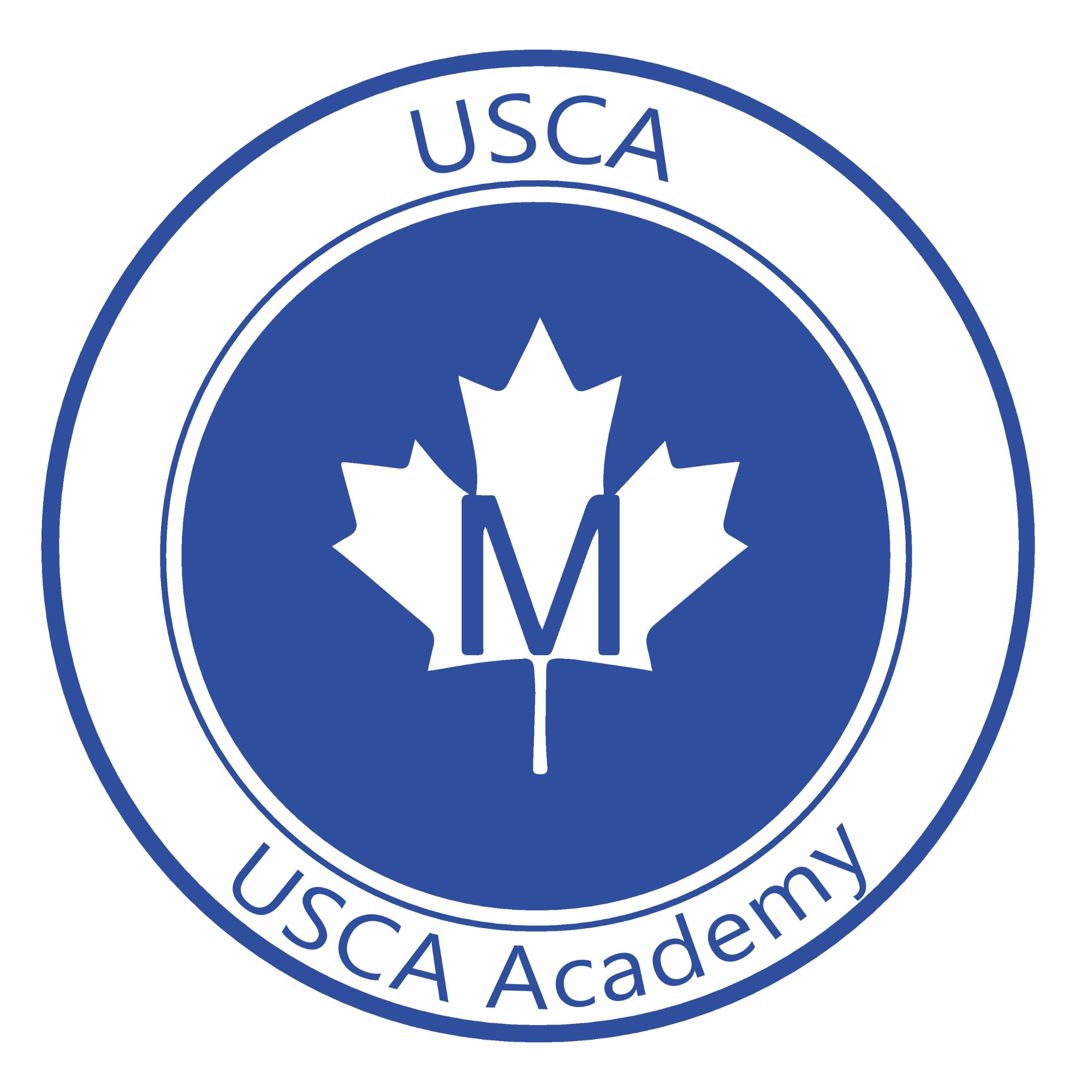Study In Canada For International Students
Canada has emerged as one of the top study destinations for students worldwide. It is not just the quality of education but also the lifestyle, affordability, and welcoming culture that make Canada stand out. Let’s explore in greater detail why study in Canada continues to attract international students year after year.
Key Updates for Studying in Canada:
If you’re planning to study in Canada, staying informed about policy updates and requirements is crucial. As 2025 approaches, Canada has introduced several changes that impact study permits, postgraduate work opportunities, and spousal work permits. Here’s what you need to know to navigate the process smoothly.
- Study Permit Cap for 2025
The Immigration, Refugees and Citizenship Canada (IRCC) has announced a cap on study permits for 2025. Here’s a breakdown of the key changes:
- Reduced Visa Targets: IRCC plans to issue 437,000 visas in 2025, which is a 10% reduction compared to the 2024 targets.
- Impact on Allocations: Despite a 35% cap introduced in January 2024, institutions have not reported significant changes in seat availability for international students.
- Pro Tip: Expedite your application process at every stage to minimize risks associated with the study permit cap. Early submissions and thorough documentation can make a difference in securing your place.


2. Changes to Master’s and PhD Programs
For students pursuing higher education, new documentation and allocation policies have been introduced:
Pre-Arrival Letter (PAL):
A Pre-Arrival Letter (PAL) is now mandatory for Master’s and PhD programs.
Universities have streamlined the process for obtaining PALs, ensuring minimal delays for applicants.
12% Permit Allocation: IRCC has reserved 12% of total study permits for students enrolling in Master’s and PhD programs.
What to Do: Begin your PAL application as soon as you receive your admission offer. Universities are prepared to guide students through the process.
- Post-Graduation Work Permit (PGWP) Eligibility
The Post-Graduation Work Permit (PGWP) remains a key advantage for international students looking to gain work experience in Canada after graduation. Here’s how the updated guidelines affect you:
- Eligibility Criteria:
- Graduates from public colleges offering programs linked to occupations facing long-term labor shortages will continue to qualify for a PGWP of up to 3 years.
- The PGWP is aligned with labor market needs as defined by provincial and federal governments.
- Why This Matters: A PGWP not only provides valuable Canadian work experience but also serves as a pathway to permanent residency.
- New English Language Proficiency Requirements for PGWP
Starting November 1, 2024, all PGWP applicants must demonstrate a minimum level of English language proficiency.
- Language Benchmarks:
- University Graduates: Must achieve Canadian Language Benchmark (CLB) Level 7, equivalent to an IELTS score of 6.
- College Graduates: Need CLB Level 5, equivalent to an IELTS score of 4 to 4.5.
- Tips for Success:
- Take your language test early to avoid delays.
- Consider preparatory courses if you need to meet the required benchmarks.


- Spousal Work Permit Opportunities
Canada continues to offer opportunities for spouses of international students to work during their stay. The latest updates include:
- Eligibility for Spousal Work Permits:
- Spouses of Master’s students enrolled in programs lasting 16 months or longer in designated essential fields are now eligible for work permits.
- What This Means: This policy allows families to support themselves financially while the student focuses on their education.
- Action Plan: If you’re pursuing a Master’s program, ensure it qualifies under essential fields to benefit from this provision.
Why Study in Canada?
- Canada: A Top Student Destination
Canada’s reputation as a student-friendly country is well-deserved. In 2025, three Canadian cities earned spots in the QS Best Student Cities list’s top 50, a testament to the nation’s commitment to providing a thriving academic and social environment. From vibrant urban hubs like Toronto and Vancouver to culturally rich cities like Montreal, Canada offers a welcoming and inclusive atmosphere for students worldwide.
- Extended Work Opportunities for Graduates
One of the most attractive aspects of studying in Canada is the opportunity for post-graduation work. International students can benefit from up to 3 years of post-study work rights through the Post-Graduation Work Permit (PGWP) program. This pathway allows graduates to gain valuable Canadian work experience, enhancing their resumes and increasing their chances of securing permanent residency.
- World-Class Education at Affordable Costs
Canadian universities are globally recognized for delivering exceptional education. The QS World University Rankings 2025 lists three Canadian universities among the top 50 globally, with a total of 30 Canadian institutions making the rankings. Despite this high quality, Canadian education remains more affordable compared to other top destinations like the US or the UK, making it an ideal choice for students seeking value without compromising on excellence.
- A Multicultural and Inclusive Environment
Canada is renowned for its multicultural society, welcoming students from every corner of the globe. This cultural diversity creates a rich tapestry of perspectives and experiences, making it easier for international students to adapt and thrive. Whether you’re sharing a classroom with peers from different backgrounds or exploring the vibrant festivals and cuisines, Canada offers an unmatched cultural experience that enhances both personal and academic growth.
Top courses to study in Canada
Here are the popular study abroad courses that you can choose for studying in Canada:
- Computer science
- Business
- Engineering
- Health sciences
- Physiotherapy
- Information technology
- Animation and gaming
- Hospitality
Top universities to study in Canada
When deciding which university to study at, it is crucial that you also look at the world university rankings.
S.No. | Institution | QS Ranking 2025 (Globally) |
1 | University of Toronto | 25 |
2 | McGill University | 29 |
3 | University of British Columbia | 38 |
4 | University of Alberta | 96 |
5 | University of Waterloo | 115 |
6 | Western University | 120 |
7 | Université de Montréal | 159 |
8 | McMaster University | 176 |
9 | University of Ottawa | 189 |
10 | Queen’s University at Kingston | 193 |
Intakes in Canada
Unlike a single intake in Indian universities, Canadian colleges and universities offer three intakes. In some universities, intakes may also be referred to as a semester. The three intakes available in Canada are:
- Fall: A popular intake among Indian students, The Fall intake starts in the month of September
- Winter: Starts in January; it’s best if you miss the September intake
Summer: Available for limited programs and colleges, the Summer intake usually starts around April and May
Cost to study in Canada
When planning to study in Canada, one of the key considerations is your tuition fees. The cost of education in Canada varies depending on the type of program, institution, and level of study you choose. Here’s a detailed breakdown to help you plan your budget effectively:
How Much Does It Cost to Study in Canada?
On average, international students will need between CAD 13,000 and CAD 35,000 per year to cover tuition fees. However, this range can differ significantly based on the program and institution:
- Affordable Fields of Study: Courses in humanities, education, and arts tend to have lower tuition costs, making them budget-friendly options for students.
High-Cost Programs: Degrees in medicine, engineering, and other specialized fields are usually more expensive due to the resources and expertise required.
Postgraduate Studies in Canada
If you’re considering postgraduate programs, be prepared for higher tuition fees. The costs often depend on the field of study and the institution’s reputation. MBA programs, for instance, are among the priciest options but also provide immense career value.
Typical Cost of MBA Programs: Tuition fees for MBA courses generally range between CAD 30,000 and CAD 42,000.
Planning Your Budget
While tuition fees represent a significant portion of your expenses, it’s essential to consider other costs such as accommodation, food, transportation, and study materials. A well-thought-out financial plan will ensure a smooth and stress-free academic journey.
Canada offers exceptional value for international students with its world-class education system and diverse range of programs. Whether you’re pursuing undergraduate or postgraduate studies, the investment you make in your education will open doors to global opportunities.
S.no. | Study program | Average annual fee |
1 | Program | $13,000 to $20,000 |
2 | Postgraduate master’s degree | $17,000 to $25,000 |
3 | Doctoral Degree | $7,000 to $15,000 |
4 | Master of Business Administration (MBA) | $30,000 to $40,000 |
Scholarships to study in Canada
Here are some popular government-funded scholarships available for Indian students to study in Canada:
S. No. | Name of the scholarship | Description |
1 | Shastri Indo-Canadian Institute | Offers various fellowships at different levels from graduate to post-doctorate and from research to training fellowships |
2 | Canadian Commonwealth Scholarship and Fellowship Plan | This scheme identifies students with high intellect from Commonwealth countries applying to programs of advanced study and research at the Master’s and PhD level |
3 | Ontario Graduate Scholarship Program | This scholarship is for graduate students in a wide variety of disciplines. |
4 | National Research Council of Canada (NRCC) | Research associateship is offered to master’s degree holders in engineering and Ph.D. holders in natural science or engineering disciplines. |
5 | Quebec Provincial Government Scholarship | This scholarship is for students studying in Quebec. |
6 | Ontario Trillium Scholarship | First announced in November 2010 for doctoral students from around the world to study in Ontario. |
7 | Partnership Grants by the Social Sciences and Humanities Research Council of Canada | This scholarship is for Ph.D. candidates. |
8 | Banting Postdoctoral Fellowships | This is offered by the Canadian government to international students to pursue postgraduate programs within natural science, social sciences, or healthcare research. |
9 | Vanier Canada Graduate Scholarships | This scholarship is awarded by the Government of Canada to meritorious students who aspire to pursue a doctoral degree at a Canadian institution. |
*This is an indicative list, speak with our Canada Education Consultants for more details and get the best available options suited to your profile
Learn more about Canada scholarships for Indian students
Student visa requirements for Canada
If you’re planning to study in Canada, obtaining a study permit is a vital step. This permit not only validates your stay as a student but also ensures you comply with Canadian immigration regulations. Here’s what you need to know:
What is a Study Permit?
A study permit is an official document issued by Immigration, Refugees and Citizenship Canada (IRCC) that allows international students to study at a Designated Learning Institution (DLI) in Canada. It’s essential for staying in the country legally during your studies.
Visitor Visa or Electronic Travel Authorization (eTA)
When you receive your study permit approval, you’ll also be issued either:
- A Visitor Visa: This allows you to enter Canada if you’re traveling from a country that requires visas.
- An Electronic Travel Authorization (eTA): For visa-exempt countries, an eTA is linked electronically to your passport, granting you entry.
These documents work alongside your study permit, ensuring smooth entry and residency during your educational journey.
Responsibilities While on a Study Permit
To maintain your status, it’s crucial to:
- Stay Enrolled: Ensure you remain registered in a program at a Designated Learning Institution (DLI).
- Make Academic Progress: You must actively work towards completing your course or program.
- Follow Permit Conditions: Abide by the terms of your study permit, including working hours if applicable.
Failing to meet these requirements can result in losing your student status and could affect future opportunities to study or work in Canada.
Canada offers a world-class education system and incredible career opportunities, making it a top choice for international students. By securing your study permit and understanding its requirements, you’re taking the first step toward a successful and fulfilling educational experience.
Top Cities to study in Canada
Canada is globally recognized for its exceptional education system and its inclusive, welcoming environment for international students. According to the QS Best Student Cities Rankings 2025, several Canadian cities stand out as ideal destinations for students, offering a perfect mix of academic prestige and an exciting lifestyle. Here’s a closer look:
- Toronto: A Global Education Hub
Known as Canada’s largest city, Toronto boasts a diverse cultural scene and world-renowned institutions like the University of Toronto and Ryerson University. The city offers:
- Access to cutting-edge research opportunities.
- A vibrant urban lifestyle with endless cultural festivals and events.
- Strong job prospects in industries such as technology, finance, and healthcare.
- Montreal: The Cultural Capital of Canada
Montreal is celebrated for its bilingual charm and rich history. It consistently ranks high among student cities due to:
- Top-tier universities like McGill University and Université de Montréal.
- A lively arts scene and affordable cost of living compared to other major cities.
Opportunities to immerse yourself in both French and English cultures.
- Vancouver: The Gateway to Innovation and Nature
Nestled between mountains and the Pacific Ocean, Vancouver is perfect for students seeking quality education and breathtaking landscapes. Highlights include:
- Prestigious institutions like the University of British Columbia and Simon Fraser University.
- A booming tech industry, making it ideal for aspiring tech professionals.
Outdoor adventures, from skiing in Whistler to kayaking along the coast.
- Ottawa: Canada’s Academic and Political Heart
As the capital city, Ottawa offers a balance of academic excellence and cultural richness. Students benefit from:
- Leading universities like Carleton University and the University of Ottawa.
- A thriving job market in government, technology, and international relations.
Picturesque neighborhoods and landmarks like the Rideau Canal.
- Calgary: A Rising Star for Students
Calgary is rapidly gaining popularity as a student-friendly city due to its affordable living costs and growing educational reputation. Key features include:
- The University of Calgary’s cutting-edge research programs.
- Proximity to natural wonders like Banff and Jasper National Parks.
- A dynamic energy sector offering excellent career opportunities.
Cost of Living in Canada for International Students
When moving to Canada for your studies, you’ll encounter noticeable differences between life in Canada and your home country. To make a smooth transition, it’s essential to familiarize yourself with the Canadian lifestyle and the cost of living in the city where you plan to stay.
Among Canadian cities, Quebec stands out as one of the most affordable, with living expenses significantly lower than in cities like Toronto or Vancouver. However, regardless of where you choose to live, thoughtful financial planning is vital.
Financial Preparedness for Your Study Permit
While applying for your study permit, you must demonstrate to the Canadian government that you have sufficient funds to cover your tuition fees and living expenses. This requirement ensures that you can comfortably sustain yourself during your stay.
When creating your budget, consider these key expenses:
- Communication Costs
Staying connected with loved ones back home will be a priority, so budgeting for phone and internet bills is crucial. Many service providers offer student discounts and affordable international calling plans. On average, you can expect to spend around CAD 20 per month for basic communication needs.
- Textbooks and Academic Supplies
Textbooks can be one of the more expensive aspects of your education. For instance, books for engineering programs may cost between CAD 250 and CAD 350, while textbooks for law, medicine, or pharmacy courses can be even pricier.
Here’s how you can manage these costs effectively:
- Opt for used textbooks from campus stores or online platforms.
- Purchase digital versions when available, which are often cheaper.
- Utilize your university’s library for free access to study materials.
- Personal Expenses and Miscellaneous Costs
Everyday expenses like laundry, toiletries, clothing, and dining out will form a significant part of your monthly budget. These costs will vary depending on your lifestyle and spending habits.
Here are a few tips to manage personal expenses:
- Cook at home to save on dining costs.
- Shop during sales or use student discounts for clothing and essentials.
Plan your outings and social activities within a set budget.
Affordable Living Tips for Students
- Choose Cost-Effective Housing: Consider staying in university dorms, shared apartments, or homestays to reduce rent expenses.
- Leverage Student Discounts: From transportation to entertainment, student discounts are widely available in Canada.
- Budget for Emergencies: Set aside a portion of your funds for unexpected expenses to avoid financial strain.
Why Financial Planning is Key
Proper budgeting not only helps you manage your expenses but also ensures peace of mind throughout your educational journey. With a clear understanding of the cost of living and some smart financial decisions, you can focus on making the most of your time in Canada without unnecessary stress.
By taking these steps, you’ll set yourself up for a successful and enriching experience as an international student in one of the world’s most welcoming countries.
This content is optimized with the focus keyword “study in Canada”, ensuring it aligns with SEO best practices while maintaining a human touch to engage readers effectively.
Job prospects in Canada
- Work While You Study Students in Canada can work up to 20 hours per week during academic sessions and full-time during scheduled breaks. This allows students to gain valuable work experience while supporting their living expenses.
- Post-Graduation Work Permits (PGWP) The PGWP program enables graduates to work in Canada for up to three years, depending on the length of their program. This is a stepping stone for those looking to gain Canadian work experience and eventually apply for permanent residency.
- Thriving Sectors With a stable economy, Canada offers career opportunities across various sectors, including technology, healthcare, engineering, and business. The demand for skilled professionals is particularly high in industries addressing labor shortages, making it easier for students to transition into the workforce.
Frequently Asked Questions (FAQ): Study in Canada
Canada offers high-quality education, affordability, diverse work opportunities, and a clear path to permanent residency. Its welcoming culture and stunning landscapes make it even more appealing.
The cost varies by program and institution, but tuition fees typically range from CAD 15,000 to CAD 35,000 per year. Scholarships can help reduce expenses significantly.
Yes, international students can work part-time during their studies and full-time during holidays. Programs often include co-op opportunities for hands-on work experience.
Absolutely! Canada is one of the safest countries globally, with low crime rates and a welcoming environment for students from diverse backgrounds.
Yes, Canada provides pathways to permanent residency through programs like the Post-Graduation Work Permit (PGWP) and Express Entry system.
